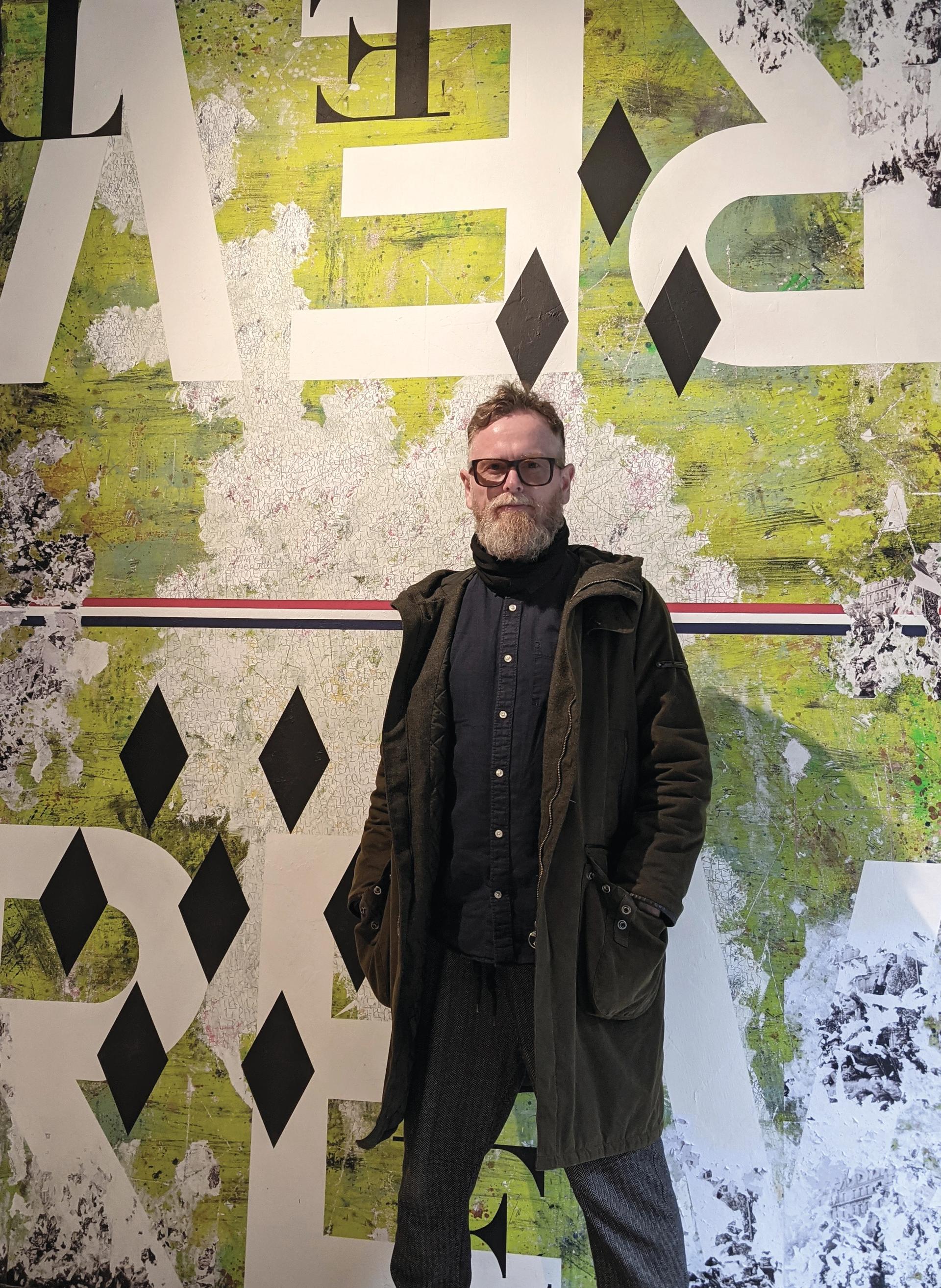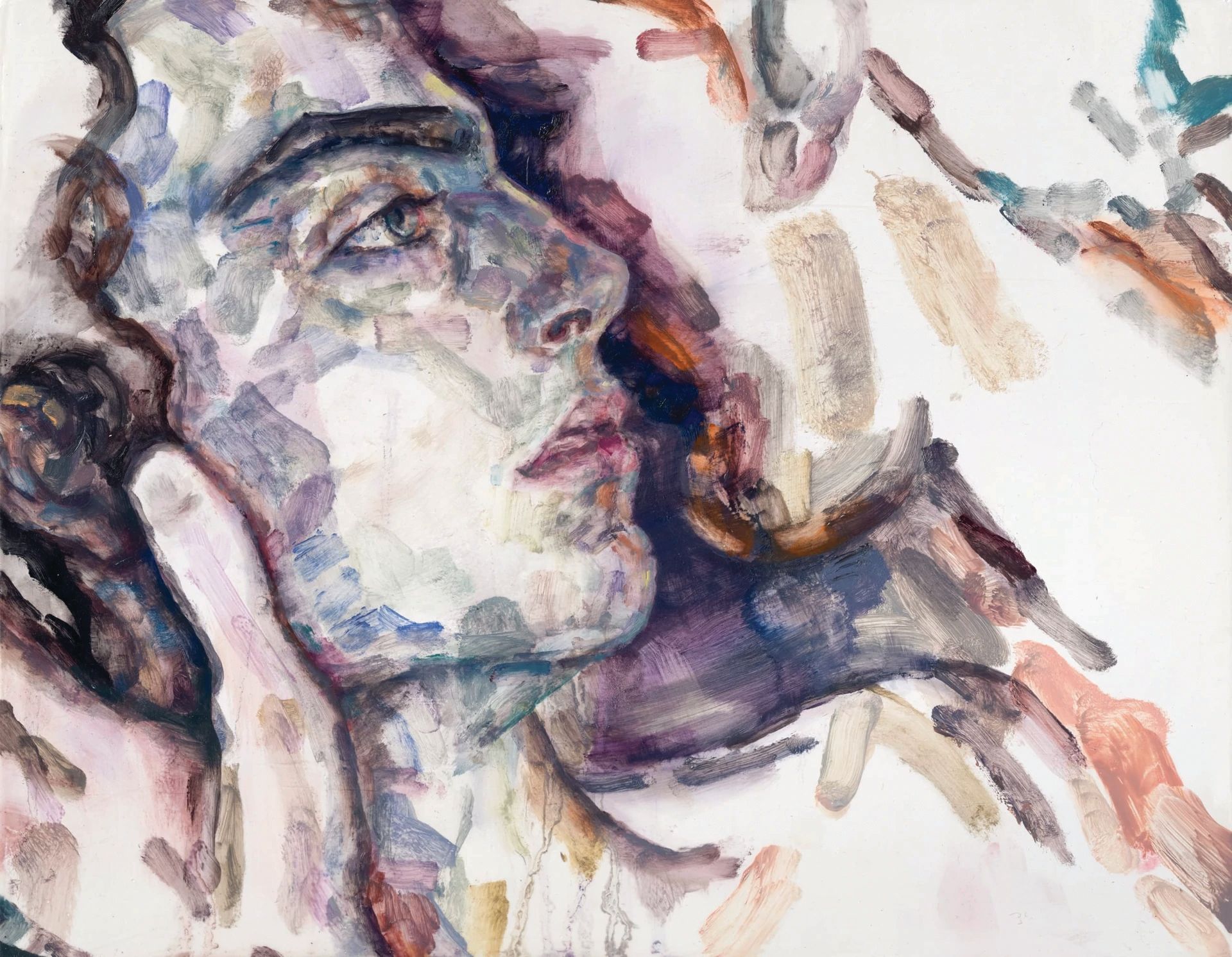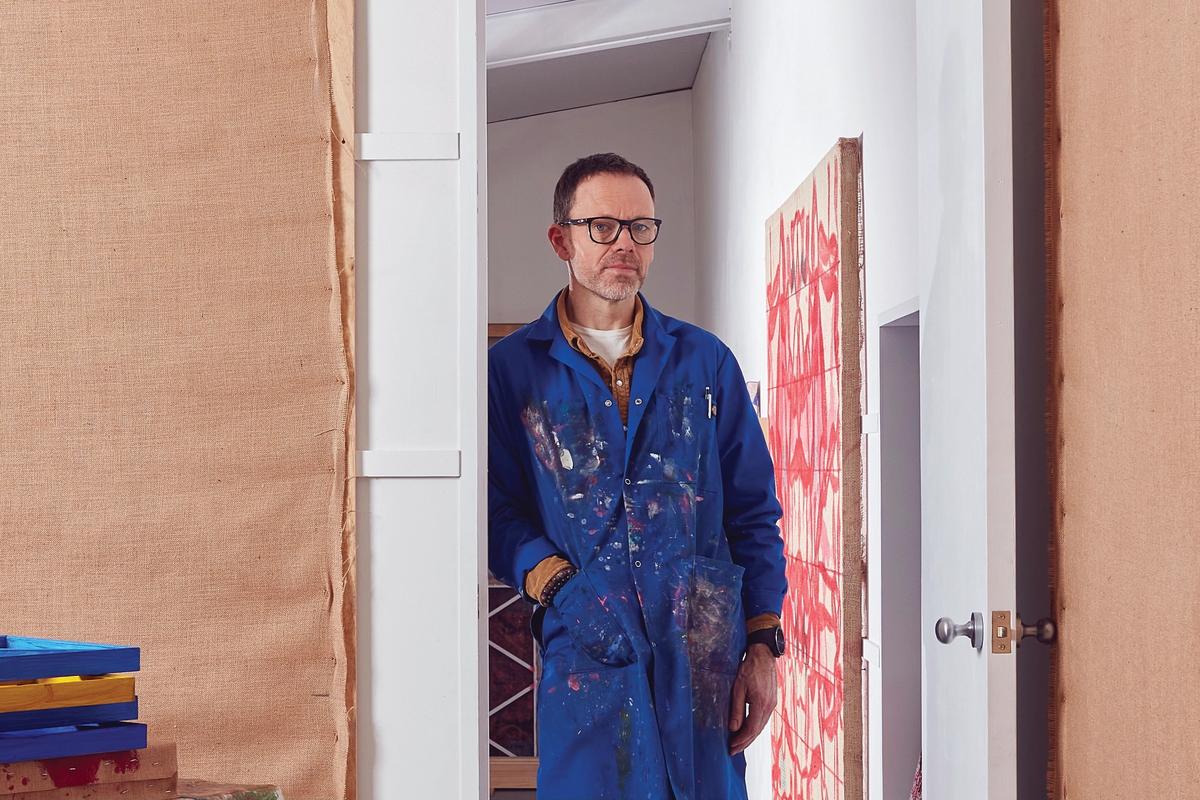Just over a week after Russia invaded Ukraine, Berlin’s Neue Nationalgalerie was transformed into a two-day, non-stop artist-led vigil. Our Space to Help’ was initiated and developed by the Neue Nationalgalerie’s Director Klaus Bisenbach in close collaboration with artists Anne Imhof and Olafur Eliasson. It attracted more than 7,000 visitors and raised nearly €250,000 for the charity Be an Angel e.V to help Ukrainian refugees arriving in the city and transport supplies to Kyiv and Odessa.
Meanwhile, besides bathing their façades in yellow and blue light, British art institutions have not yet been so forthcoming. Instead, as is so often the case, it is our artists who have seized the initiative. First off the block was the Sussex-based painter Matthew Burrows, who has set up Ukraine Support Pledge with the artist and curator Zavier Ellis. This fundraising initiative follows similar principles to his acclaimed Artist Support Pledge, the online artist support system he founded in March 2020 at the beginning of the pandemic, and for which he was awarded an MBE for services to the arts.

Curator Zavier Ellis has co-organised Ukraine Support Pledge. Photo: Mark Cocksedge
Burrows’s concept for Artist Support Pledge is brilliantly simple. Artists post pictures of their work on Instagram for a sale price of £200 or less using the hashtag #artistsupportpledge. Every time an artist makes £1,000 in sales, they then pledge to spend £200 on work by another participating artist (pledges are made using the hashtag). Payment is arranged directly with the artists—there are no third parties. Over the past two years this circular economy has generated more than £80m and provided thousands of artists worldwide with crucial income at a time when all other sources had dried up, and it continues to be a game changer for many.
Now Burrows is harnessing the success of this platform to respond to the crisis in Ukraine. “I felt that the humanitarian gravitas of what was going on in Ukraine couldn’t be ignored and that I had the position to do something—it was just deciding what to do,” he says. “We wanted something that was effective, that wasn’t apologetic or patronising.”
The result is #ukrainesupportpledge, which also uses the instant accessibility of Instagram for the direct buying and selling of art. Like #artistsupportpledge this initiative is open to all artists to post images of their work on Instagram using the hashtag and for a suggested price of £200 apiece. Buyers then message the artist to purchase the work. But with #ukrainesupportpledge 100% of the funds raised from the sale of works go directly to the Ukraine Crisis Relief Fund, with purchasers making their payments not to the artist but directly to Global Giving Ukraine Crisis Relief Fund via a JustGiving page. Only when the buyer sends the artist a screenshot confirming their donation is the work released.
“Artists are forever being asked to donate to charitable auctions, but they end up being the only people making the donation. The buyers just get the work and don’t give anything to the cause, even though it’s often peddled that way,” says Burrows. “We wanted both artist and buyer to make a donation and, even though I’m always nervous about asking artists to do more than they are doing, it was clear from the messages I was getting that this was something the community wanted to get behind.”
At the time of writing, the #ukrainesupportpledge has been generating around £12,000 a day, and the sums are rising. The scheme runs until 3 April; after then, artists and buyers using #artistsupportpledge can choose if they want to continue to make a donation as part of their sale.

Elizabeth Peyton's Elio; Oliver (Call me by Your Name) (2018) © Elizabeth Peyton
More generosity is in evidence in Artists at Risk, another artist-led initiative launched on 15 March by the Berlin-based artist Adam Broomberg. Here, an informal group of around 70 international artists—including big names such as Luc Tuymans, Matthew Barney and Hito Steyerl—have each donated a work as an open-edition print. All the prints are priced at €200 each, excluding shipping, with proceeds going to enable the activist not-for-profit organisation Artists at Risk to facilitate emergency travel, shelter and financial support for artists in Ukraine. The first round closes on 30 April.
As the world’s governments—and especially the UK’s—struggle to alleviate the plight of Ukraine, it is to the credit of these artists that they have taken the initiative and are trying to make a real difference. “Declaring your solidarity with the Ukraine is fine, but you have to do something,” Burrows says. “Words without action are pointless. No matter how small your action is, it has still got to be an action.” Amen to that.


